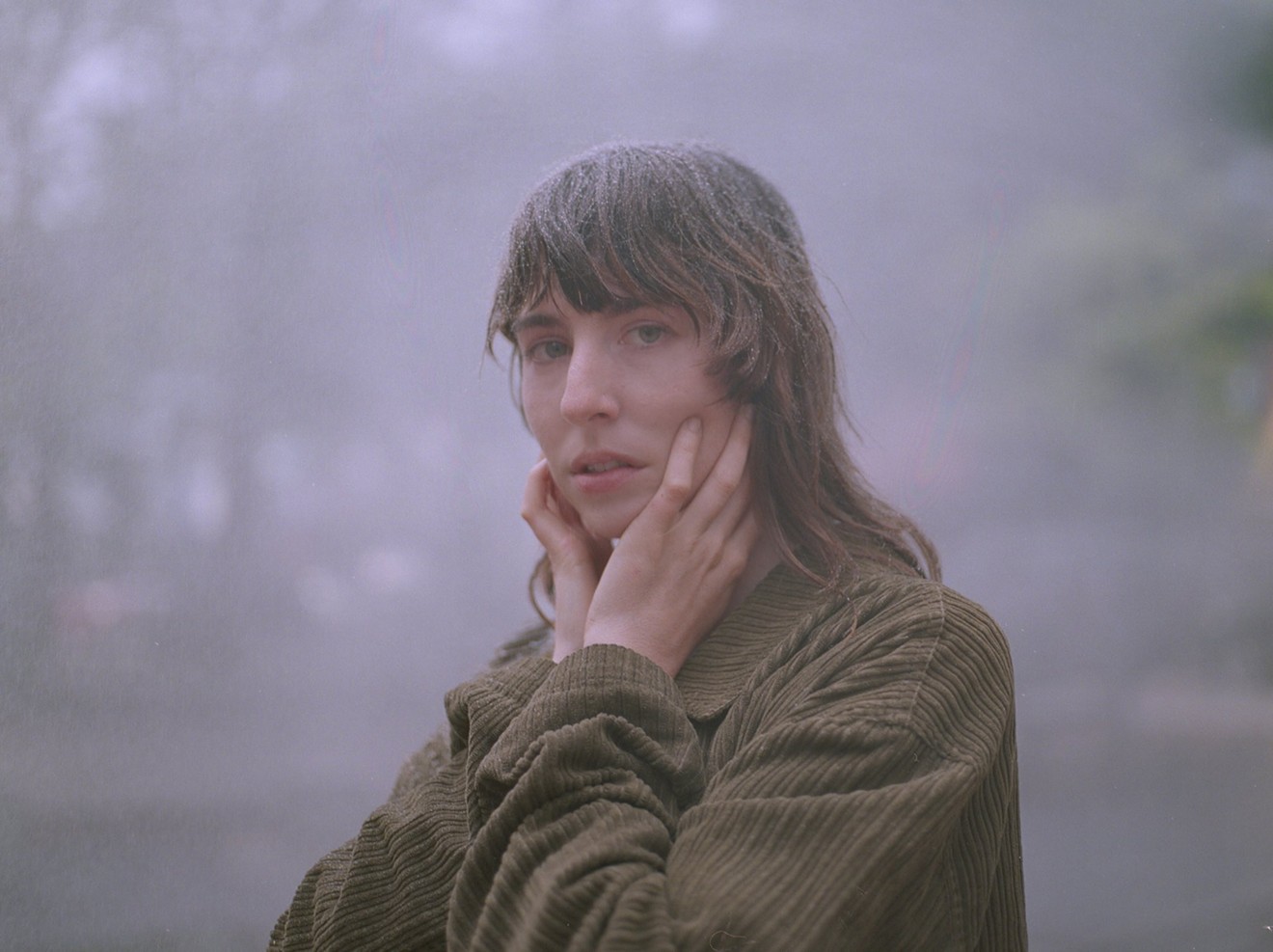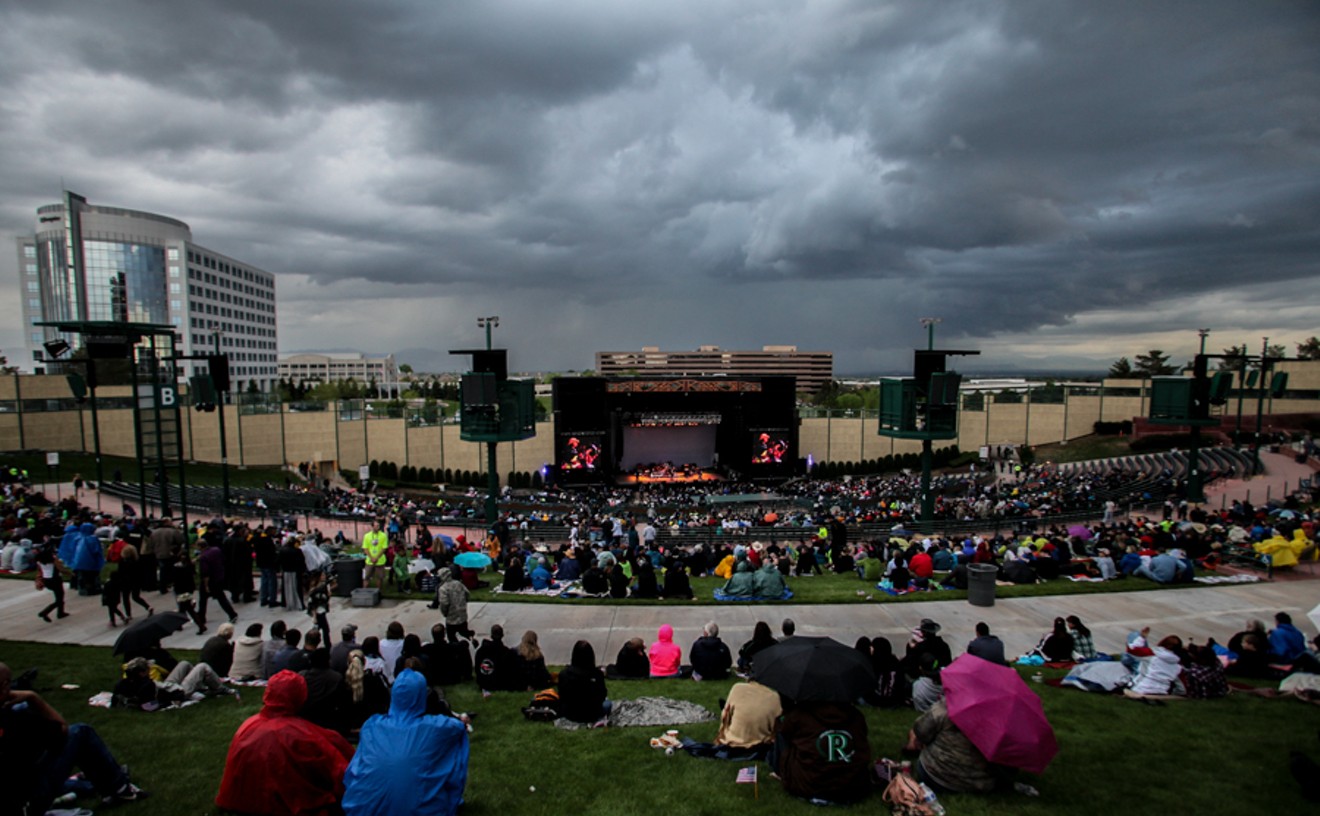At fifteen, Mothers frontwoman Kristine Leschper was like most fifteen-year-olds in America: She just wanted to be cool.
To achieve this goal, she asked her mother, a now-retired medical lab technician, and her father, a window manufacturer, to buy her the ultimate signifier of teenage cool: a guitar.
Her parents relented. Leschper admits that that first guitar spent a decent amount of time collecting dust in her room. But every now and then, she would noodle on it. She also discovered new music by sneaking into her older sister’s room and smuggling out mixtapes that boyfriends had made for her. Her sister’s musical taste would prove more formative than that of their parents, who listened exclusively to old-school country and classic rock. Her mother, in particular, loved Black Sabbath.
“I can’t tell you how many times I’ve listened to Paranoid with my mom,” Leschper says.
That said, the musical stylings of Ozzy Osbourne are hardly audible in Mothers’ brand of understated indie rock. The acts that Leschper discovered as a teenager with an Internet connection — Bright Eyes, Neutral Milk Hotel and Sufjan Stevens — helped shape her sound.
“I related to music that was intimate and confessional,” she recalls. “I was a sad kid and an angry teenager.”
But as someone born in the generation that experienced the golden age of AIM, Leschper also recognized the Internet as a tool for genuine human connection.
“It was a really exciting thing that I realized was a resource for finding things and finding other people who shared my interests,” she says. “Growing up, I didn’t have a lot of friends. I didn’t know a lot of people I related to, so I looked to the Internet to find hope and camaraderie.”
After high school, she enrolled in a psychology program at Georgia State only to discover that psychology wasn’t her calling. She transferred to the University of Georgia in Athens to study art history, but that major didn’t fit right, either. She enrolled in a few introductory studio-art electives and subsequently fell in love with printmaking — namely because it was dangerous.
“It’s a lot of working with chemicals that are really bad for you, that you have to be really careful around,” she says. “It was special because it was dangerous. I remember feeling that it was so badass.”
Newly confident about her visual-arts skills and supported by her peers and professors, Leschper decided to commit to songwriting. It helped that she was already in Athens, a musical hotbed home to the famed Elephant 6 collective, Cloud Recordings, Neutral Milk Hotel, Of Montreal and R.E.M. At this point, the Mothers origin story follows the typical narrative: Leschper started at open-mic nights, then did a few house shows, then moved on to the bar-venue circuit.
By 2016, she’d expanded Mothers into a full-fledged project with a co-writer — her friend and drummer Matthew Anderegg. That year, Mothers released their proper debut, When You Walk a Long Distance You Are Tired, garnering buzz with their fragile, idiosyncratic and just-folksy-enough sound. The album was, in a word, good — good enough to catch the ear of lauded producer John Congleton (whose past clients include Erykah Badu, Angel Olsen and Earl Sweatshirt).
Intrigued by the band’s sound, Congleton signed on to produce the followup, this year’s Render Another Ugly Method. That record is, in a word, different — structurally looser, less willing to forgive, and more concerned with the tragedies and trauma of living in the world and a body than its predecessor. Parts of it feel post-punk — you can hear strains of Women and Cate le Bon in the trembling minor chords — and much of it settles into a complicated relationship with intimacy and dissociation. “I am excited by the prospect of living without a body/I am ungrateful and this proves it,” she intones on “Wealth Center/Risk Capital.”
As a lyricist, Leschper prefers the poetic, using fragments of conversations and mining seemingly mundane moments. In “Pink,” she watches the driver run a red light from the back seat; in “Beauty Routine,” she turns brushing her teeth into an act of desperation and extreme distraction. It’s sparse, taut, and very nearly devastating at times.
But it’s no longer what she’s trying to write.
“For a long time, I’ve been a person who tends to write songs that are very melancholy. If they’re not melancholy, then they’re very dark and they deal with these heavy ideas,” she says. “I’ve turned a corner where I’m realizing that art and music don’t have to be about really heavy ideas. I don’t have to write sad songs, even though that is something that has come really easy to me.”
What remains? The act of songwriting itself, which Leschper describes as more of a necessity and process of self-discovery than a creative desire. It’s also a way to reach out.
“What feels better than to read something and think to yourself, ‘Yes! Yes! This is exactly how I have been feeling, and I just haven’t been able to put it into words’? In my work, I hope to continue to discover myself, and I also hope to facilitate or catalyze discovery in someone else.”
Mothers, 8 p.m. Saturday, October 20, Larimer Lounge, $13.50-$15, 2721 Larimer Street.
Update October 19, 2018: This show's date has been changed from Sunday, October 21 to Saturday, October 20.
[
{
"name": "Air - MediumRectangle - Inline Content - Mobile Display Size",
"component": "12017618",
"insertPoint": "2",
"requiredCountToDisplay": "2"
},{
"name": "Editor Picks",
"component": "17242653",
"insertPoint": "4",
"requiredCountToDisplay": "1"
},{
"name": "Inline Links",
"component": "18838239",
"insertPoint": "8th",
"startingPoint": 8,
"requiredCountToDisplay": "7",
"maxInsertions": 25
},{
"name": "Air - MediumRectangle - Combo - Inline Content",
"component": "17261320",
"insertPoint": "8th",
"startingPoint": 8,
"requiredCountToDisplay": "7",
"maxInsertions": 25
},{
"name": "Inline Links",
"component": "18838239",
"insertPoint": "8th",
"startingPoint": 12,
"requiredCountToDisplay": "11",
"maxInsertions": 25
},{
"name": "Air - Leaderboard Tower - Combo - Inline Content",
"component": "17261321",
"insertPoint": "8th",
"startingPoint": 12,
"requiredCountToDisplay": "11",
"maxInsertions": 25
}
]











